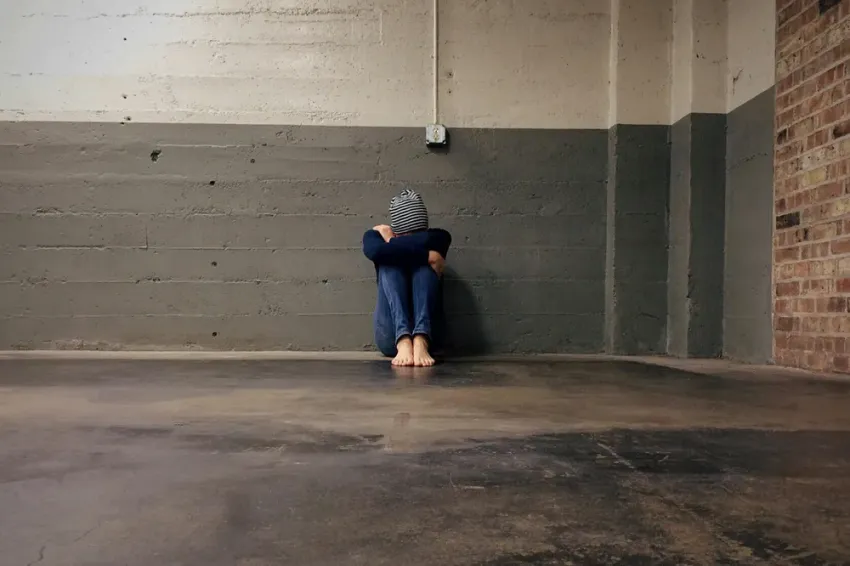The rates of poverty in the LGBTQIA+ community are higher when compared to cis-het populations, yet even internally, large inequities remain. The Trevor Project recently published a new study relating to LGBTQIA+ youth experiences with houselessness, food insecurity, and meeting basic needs. While Transgender and Nonbinary young people reported some of the greatest challenges, 40% of young LGBTQIA+ respondents overall reported hardships with accessing or obtaining all three needs at some point or another.
The study, published in April, addresses how social determinants of health, like experiencing food insecurity or homelessness, are intertwined with the increased likelihood of mental health challenges, like anxiety, depression, and suicide ideation and attempts.
“Notably, being Transgender, a person of color, or Bisexual are all factors found to be associated with higher rates of poverty,” according to the study.
The study’s methodology included surveying 18,663 LGBTQ+ young people aged 13-24, who were recruited or participated through advertisements on social media. The Trevor Project states that data from 16,869 respondents were used.
Questions about food insecurity experiences included how often respondents worried during the previous month about food running out before receiving money to purchase more, and how often they were hungry but didn't eat due to a lack of food. Questions regarding houselessness asked if a respondent was currently or had ever been unhoused. Socioeconomic questions asked respondents to describe their personal financial situation, that is, if they had more than enough to comfortably live or if they didn’t meet basic expenses.
“Pansexual young people reported the highest rates of experiencing food insecurity (40%), ever having experienced homelessness (20%), and being unable to meet basic needs (18%) compared to those with other sexual identities,” according to the study.
Dr. Derrick Matthews, director of research science at The Trevor Project, told the SGN that some of these discrepancies are due to the fact that Transgender and Nonbinary people, including those in the project’s sample population, are more likely to identify as Pansexual in comparison to cisgender LGB people.
“However, we do also know that Bisexual people and Pansexual people broadly, across gender identities, are often at heightened risk for various vulnerabilities related to their mental health, so this finding is consistent with that pattern across other research,” Dr. Matthews said.
Also, among all gender identities, Trans men and boys reported the highest rates of dealing with food insecurity (40%), ever having experienced homelessness (19%), and being unable to meet basic needs (18%).
Native and Indigenous communities bear the brunt
The study also noted how “Native/Indigenous LGBTQ+ young people reported higher rates of experiencing food insecurity (48%), ever having experienced homelessness (26%), and being unable to meet basic needs (20%) compared to LGBTQ+ young people of other races or ethnicities.”
Dr. Matthews said only one percent of the study’s sample population identified as Native or
Indigenous, which comes to about 200 young people.
“I think what’s particularly challenging is that while this is unfortunately a consistent finding, it’s hard to generalize the specific challenges one group of Native or Indigenous LGBTQ+ young folks may face; these experiences will vary by geographic region, history, and tribal affiliation among other things,” Dr. Matthews said.
A good starting point for addressing these disparities, he added, is by investing in strategies aimed at reducing these vulnerabilities, like basic income assistance and LGBTQ+-affirming housing for young people, in ways that center the LGBTQ+ community’s most vulnerable members.
Local efforts
Back in 2023, Lavender Rights Project and the Chief Seattle Club announced their selection as joint operators of a King County Health Through Housing program, a permanent supportive-housing facility with 35-units for QT2BIPOC people.
The Chief Seattle Club is an organization that supports American Indian and Alaska Native people. In addition to housing assistance, it provides primary health care, legal services, and a Native art job training program, among other services. Supportive housing is a key element of the organization’s work, and it has eight permanent and transitional housing facilities for members.
The eviction-prevention program at the organization provides rental assistance to members, which encompasses utilities and past-due bills. Its rapid-rehousing case managers assist hundreds of club members with finding long-term and affordable housing.
“But ultimately nothing will be a substitute for thoughtful and intentional engagement with local Native/Indigenous LGBTQ+ communities and allowing them to communicate their own experiences and needs,” Dr. Matthews added. “This will likely be the most effective way to begin addressing these inequities.”
Visit www.chiefseattleclub.org to learn more about housing assistance for Native and Indigenous people.


